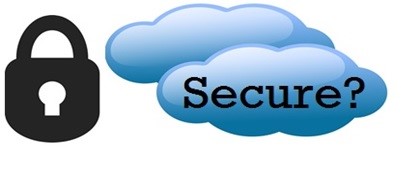If you do a quick search on Google and type in simply, “Is the cloud really safe?” you’ll find that the first four results, although biased, do have some truth to them. Each one mentions that the safety and reliability of cloud storage are still in question, based on who your provider is. This is the single most important variable as everything from level of encryption to strength of security protocols vary between one provider and the next. In this highly unregulated industry, it can be difficult to know who truly cares, and who just wants your money.
What does the past tell us?
This process of looking for the right provider becomes convoluted when remembering the whole iCloud hacking debacle that happened about a year ago. If you were on the internet at the time, you know that things as private as personal photos can simply be snatched up and used in whatever way desired.
But what you weren’t told by all those highly credible new sources like Buzzfeed, is that the cloud actually wasn’t hacked. Apple’s password vulnerabilities were exploited as many celebrities left the keys to their cars in the ignition. In this case, Apple simply had a weak password system protocol that allowed infinite password guesses, which they have indeed reconciled.
In addition to this, you can easily find people shouting from a megaphone referencing the Ponemon institute report that states that 43% of companies experienced a data breach in 2014. This study includes all the companies that have no response strategy, and those that employ highly unsecure cloud storage options. Sadly though, the information in this study is accurate as many companies simply are not knowledgeable enough on this topic to make an informed decision on which provider to go with.
So how does the cloud security actually work?
Of course, to stay secure, you data’s first defense is its encryption. What this boils down to is a complex line of algorithms that conceal your data. Some company’s encryption methods are more easily crackable than others, but of course none of them are actually “easy” to crack. To crack any rudimentary cloud storage encryption you need massive amounts of power and time.
In more advanced kinds of cloud storage like Microsoft’s Azure Security, you can see that a lot more than simple encryption goes into keeping your data safe.
What you can do to find the safest place for your data?
Don’t completely take our word for it, try doing some of your own research first, and see what you find. Of course, we’ve been doing this for some time now and it’s not really a competition anymore. Microsoft’s cloud storage with Azure security offers so much more than an ordinary cloud provider that it doesn’t leave much room for improvement. Look up what others experienced with their providers and see their history. Also consider using multiple platforms to back up your data in case any data loss occurs.




